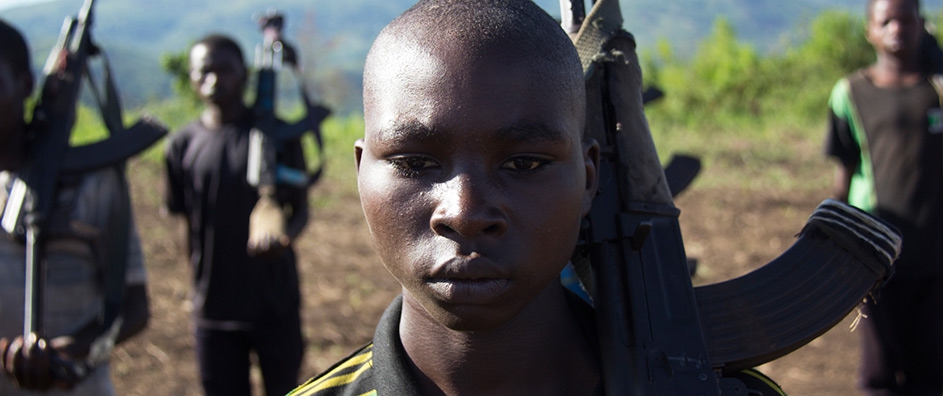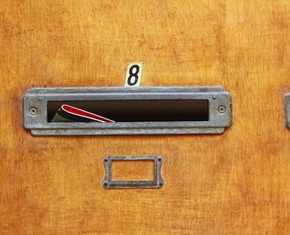The views expressed in our content reflect individual perspectives and do not represent the authoritative views of the Baha'i Faith.
As we consider the unpleasant process of developing, guarding and protecting prejudice, both in societies and in ourselves, another connection to the Golden Rule appears. Baha’u’llah tells us to “Ascribe not to any soul that which thou wouldst not have ascribed to thee…” – The Hidden Words, p. 10. The Baha’i teachings ask us to interpret motives and actions of others as generously as we interpret our own, with as much understanding and information as we have about ourselves. We would not like to be seen as less than human ourselves, so we must not allow ourselves any ignorance or bias when we look at other people.
When we explain our own actions to others, we usually give ourselves considerable benefit of the doubt. We see much that can be excused and overlooked and understood. If we really want to understand others, we have to apply this same generosity to them. We all know how painful it feels to be interpreted ungenerously, to have someone assume that we had a bad motive in doing something, when we know we meant well. By applying the Golden Rule we can find a truthful, generous way of seeing each other. The Baha’i writings tell us that:
…a kindly tongue is the lodestone of the hearts of men. It is the bread of the spirit, it clotheth the words with meaning, it is the fountain of the light of wisdom and understanding. – Baha’u’llah, Gleanings from the Writings of Baha’u’llah, p. 289.
Baha’u’llah asks us to assume innocence until guilt is proven—coincidentally a basic principle of many systems of justice in the West. These teachings relate directly to the statements in the Baha’i writings forbidding backbiting. Baha’u’llah writes:
Speak no evil, that thou mayest not hear it spoken unto thee, and magnify not the faults of others that thine own faults may not appear great; and wish not the abasement of anyone, that thine own abasement be not exposed. – The Hidden Words, p. 37.
Here, Baha’u’llah describes a world in which we can all accept our imperfections, and try to help each other become better. If we begin by assuming the best, we bring out the best in others and in ourselves. By refusing to dwell on the trivial wrong-doings of others, we focus our energies on lifting the whole community upwards. He suggests that compassion and justice do not work in opposition to each other—instead, that they represent the two indissoluble halves of one thing.
The Cause of War
When we review history from the beginning of human existence to the present age in which we live, it is evident all war and conflict, bloodshed and battle, every form of sedition has been due to some form of prejudice – whether religious, racial or national – to partisan bias and selfish prejudice of some sort. – The Promulgation of Universal Peace, p. 343.
Here Abdu’l-Baha traces the cause of war back to a lack of justice in the way we see other peoples and nations. The most terrible atrocities in the history of humanity have occurred when one group has managed to convince itself that the opposing group is not entirely human. This judgement, based on ignorance, has caused horrors from Auschwitz to My Lai, from Rwanda to Srebrenica. Injustice toward others makes war and atrocity possible.
A story my uncle tells illustrates the profound difference in response to those we perceive as being within our own group, and those we have unconsciously excluded. As a doctor specializing in medical evacuation, my uncle was involved in a medevac operation after a major road accident which involved a number of children. He delegated one of the male nursing officers to prepare the bodies of the dead children for transport back to Sydney. He chose the man for that job because he had had experience in doing it before, but, he says:
I went out to the tea room where the others were waiting, and was astounded to find the male nursing officer being resuscitated. Apparently he had fainted while bagging the bodies, and had forced himself to finish the job, but was still very pale and sweaty. I was at a loss to explain the effect on him. I knew that he had served in Vietnam, and had plenty of experience moving dead bodies—that was why I had selected him for the job. “It’s the first time I have had to deal with dead white kids,” he explained. – Peter Degotardi, Deg’s Stories: Recollections of P.R. Degotardi, p. 319.
Our prejudices, our beliefs about who is and who isn’t a part of the human community, are not necessarily expressed (even to ourselves) as conscious opinions—they may be, as for this man, buried so deep that only a horrific experience brings them out and makes them visible. Extrapolating from the individual to the communal, from the communal to the national and from the national to the international, it becomes clear that justice and the elimination of prejudice have both become prerequisites for the abolition of war.
















Comments
Sign in or create an account
Continue with Googleor